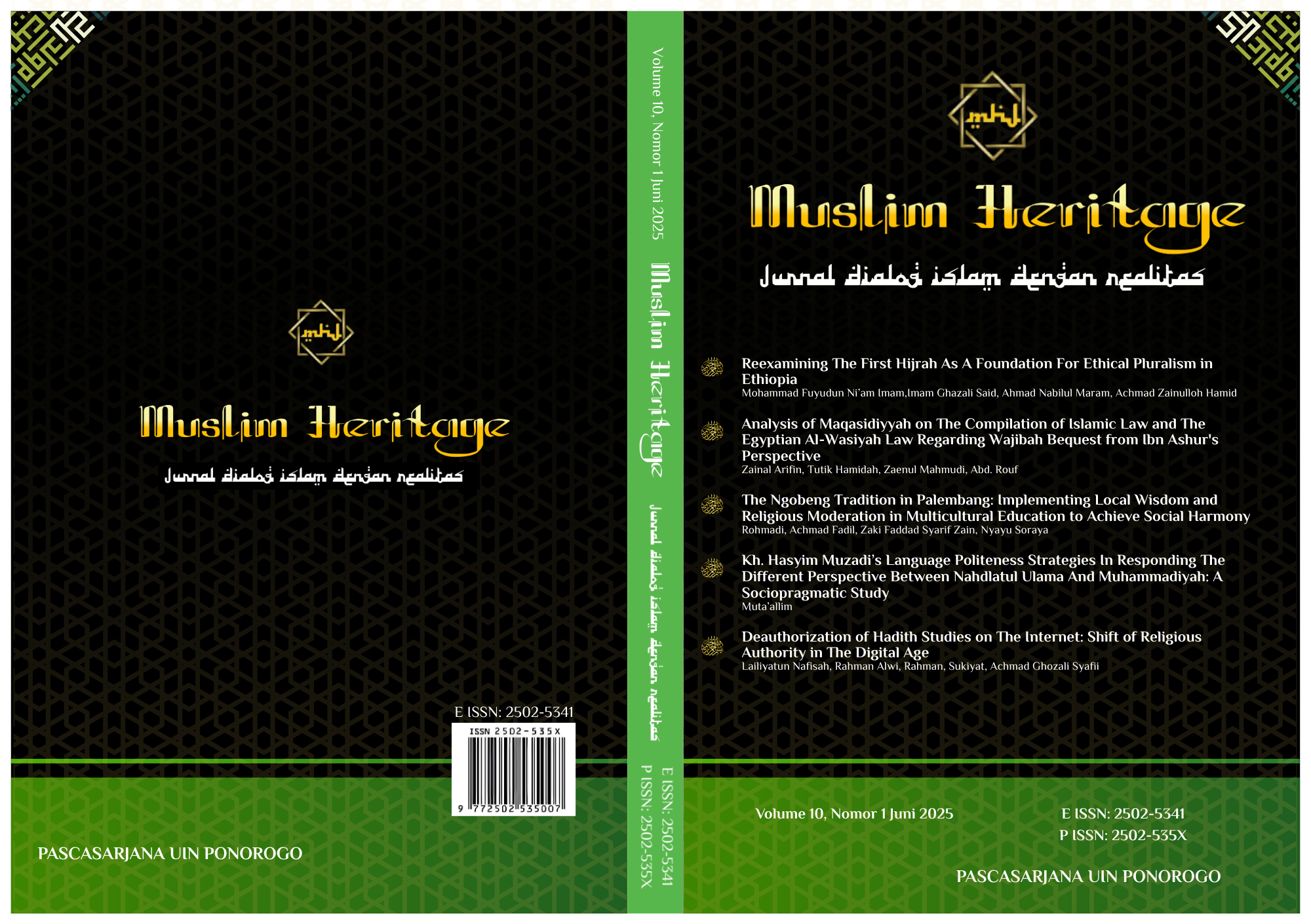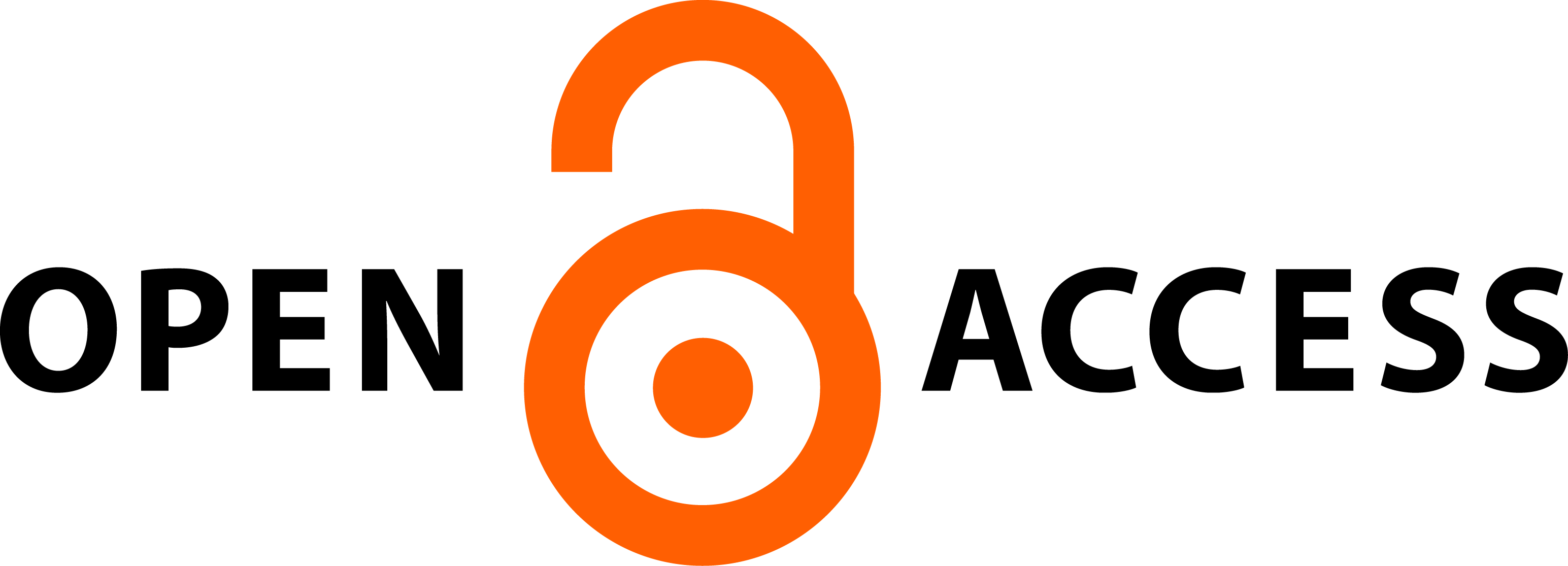Analysis of Maqasidiyyah on The Compilation of Islamic Law and The Egyptian Al-Wasiyah Law Regarding Wajibah Bequest From Ibn Ashur's Perspective
DOI:
https://doi.org/10.21154/muslimheritage.v10i1.10733Abstract
Islamic law in Indonesia is developing rapidly, including wasiat wajibah in the KHI, which is the mandatory transfer of property between parents and adopted children through a court decision. This study is normative in nature, employing the maqasid syari’ah approach of Ibn Asyur. The study aims to analyze the concept of wasiat wajibah as stipulated in the KHI, comparing it with the Egyptian Qanun to determine whether it aligns with the objectives of Islamic law. This study found several results: 1) Mandatory wills in the KHI are given to adopted children and adoptive parents, with a maximum of 1/3 of the estate. In the Egyptian Qanun, wills are given to grandchildren whose fathers died while their grandparents were still alive and who are prevented from inheriting. 2) In Indonesia, the concept of mandatory bequests has been expanded through a Supreme Court ruling to include adopted children, adoptive parents, and relatives barred from inheritance such as non-Muslims, stepchildren, and children born out of wedlock. In Egypt, according to a ruling by Darul al-Ifta, mandatory bequests are given to grandchildren if their father dies before their grandfather or grandmother. 3) According to Ibn Asyur's maqasid Syariah, the reformulation of Article 209 of the KHI regarding wasiat wajibah is in line with maqasid syariah because it preserves lineage, regulates inheritance proportionally, and creates clarity and peace between heirs and recipients of wasiat wajibah.
Abstrak
Hukum Islam di Indonesia berkembang pesat, termasuk wasiat wajibah dalam KHI, yaitu pemberian harta secara wajib antara orang tua dan anak angkat melalui putusan pengadilan. Penelitian ini bersifat normatif dengan pendekatan maqasid syari’ah Ibnu Asyur.Penelitian ini bertujuan untuk menganalisis konsep wasiat wajibah yang tercantum dalam KHI yang dibandingkan dengan Qanun negara Mesir sudahkah sesuai dengan tujuan syariat Islam. Penelitian ini menemukan beberapa hasil penelitian 1) Wasiat wajibah dalam KHI diberikan terhadap anak angkat, dan orang tua angkat maksimal 1/3 dari harta peninggalan, Sedangkan dalam Qanun Mesir wasiat diberikan kepada cucu yang ayahnya meninggal dunia sewaktu kakek atau neneknya masih hidup dan cucu tersebut tehalang untuk mendapatkan warisan. 2) Di Indonesia, konsep wasiat wajibah diperluas melalui putusan Mahkamah Agung, mencakup anak angkat, orang tua angkat, serta kerabat terhalang warisan seperti non-Muslim, anak tiri, dan anak hasil zina. Di Mesir, menurut putusan Darul al-Ifta, wasiat wajibah diberikan kepada cucu jika ayahnya meninggal sebelum kakek atau neneknya. 3) Menurut maqasid Syariah Ibnu Asyur, reformulasi Pasal 209 KHI tentang wasiat wajibah selaras dengan maqasid syariah karena menjaga nasab, mengatur warisan secara proporsional, serta menciptakan kejelasan dan kedamaian antara ahli waris dan penerima wasiat wajibah.
Keywords: Wajibah Bequest; KHI; Al-Wasiyah Law; Ibn Ashur.
Downloads
Published
Issue
Section
License

This work is licensed under a Creative Commons Attribution-NonCommercial 4.0 International License.
Requirements to be met by the author as follows:
- Author storing copyright and grant the journal right of first publication manuscripts simultaneously with licensed under the Creative Commons Attribution License that allows others to share the work with a statement of the work's authorship and initial publication in this journal.
- Authors can enter into the preparation of additional contractual separately for non-exclusive distribution of a rich version of the journal issue (eg:post it to an institutional repository or publish it in a book), with the recognition of initial publication in this journal.
- Authors are allowed and encouraged to post their work online (eg, in institutional repositories or on their website) prior to and during the submission process, because it can lead to productive exchanges, as well as citations earlier and more severe than published works. (see The Effect of Open Access).

















